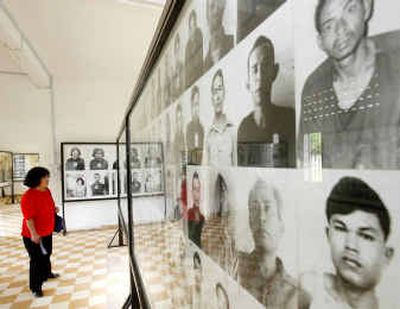Cambodia moves toward trials

PHNOM PENH, Cambodia – Cambodian lawmakers on Monday approved a U.N.-backed plan to try surviving Khmer Rouge leaders for genocide more than a quarter-century after the radical communists were ousted from power.
The vote ended seven years of negotiations and delays over a pact with the United Nations establishing the internationally assisted tribunal and cleared a major hurdle toward bringing to justice members of the regime blamed for the deaths of nearly 2 million people.
The 107 lawmakers present in the National Assembly voted unanimously to ratify the pact.
Independent human rights experts suggest about a dozen major leaders are likely to be indicted by the tribunal, but no official decisions have been made yet. It was not immediately clear when the proceedings would start. Questions also remain about how the tribunal will be funded.
“We have realized today what we have been waiting for a long time already,” Prime Minister Hun Sen told reporters after the vote. “This is a very big outcome the Cambodian people and international community have been waiting for.”
The pact still needs the expected approval of Cambodia’s Senate and head of state. Several proposed amendments to Cambodian law allowing the tribunal will be debated and are expected to be adopted today.
The news caused no stir in the capital. Many Cambodians are too young to remember the horror of the Khmer Rouge years, and most people must concentrate on earning a living from the few opportunities available in this poverty-stricken nation.
Even one of the few survivors of the Khmer Rouge’s infamous Tuol Sleng torture center took small satisfaction.
Vann Nath was one of only 14 known survivors of the prison where up to 16,000 men, women and children passed through before being killed and buried at the Choeung Ek mass graves outside the capital.
“I don’t think I can say I’m happy yet. I don’t know yet what the outcome will be,” said Vann Nath, 58. “It’s been too long, more than 20 years already, and that’s been quite demoralizing for us.”
The Khmer Rouge, who ruled the country from 1975-79, are believed responsible for the deaths of at least 1.7 million of their countrymen from starvation, disease, overwork and execution.
None of the regime’s top leaders has been brought to justice. The movement’s chief, Pol Pot, died in 1998. Several of his top lieutenants, aging and infirm, still live freely in Cambodia.